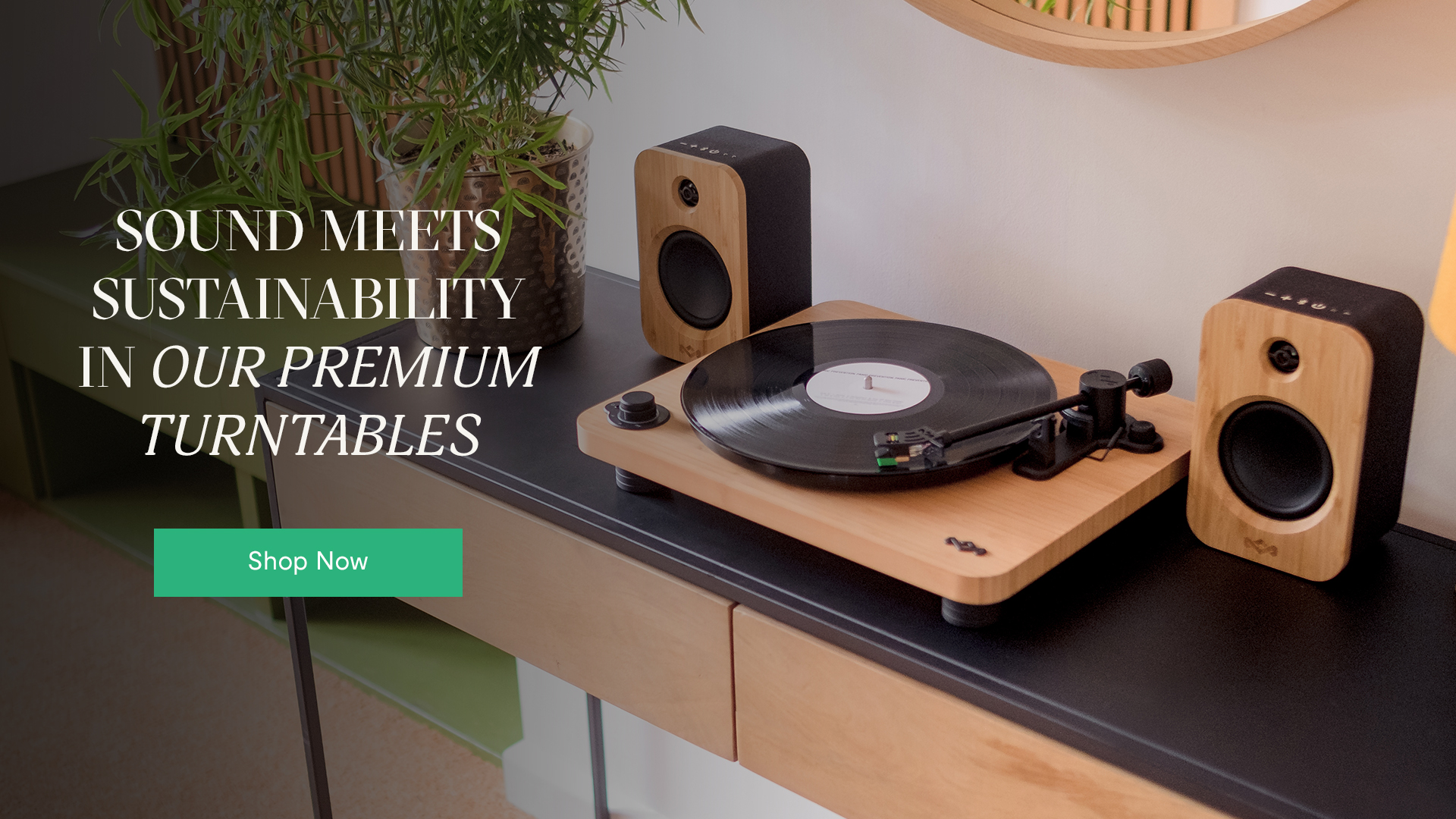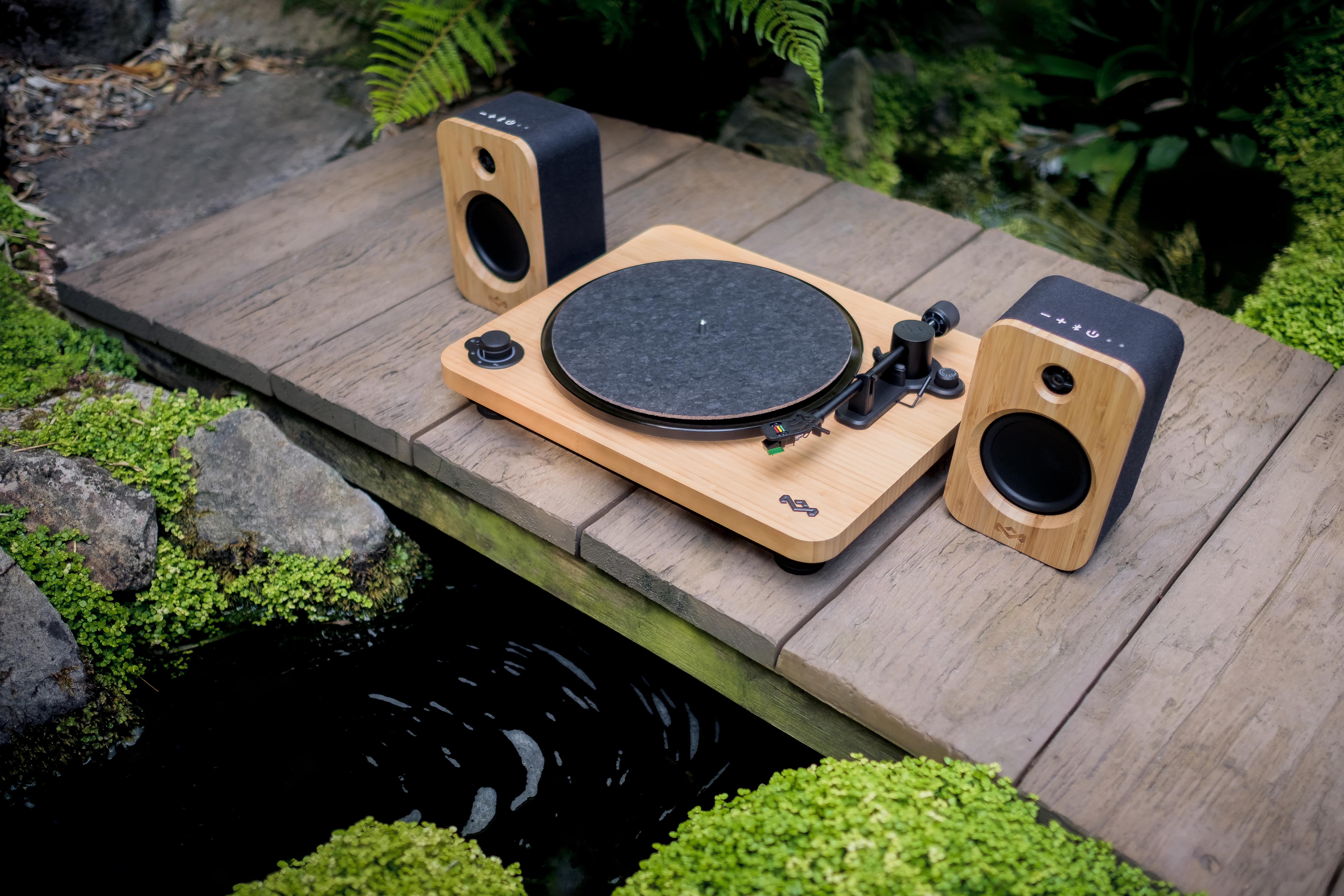How Long Do Vinyl Records Last? What to Know
Posted by House of Marley on Jan 11th 2024
Vinyl records, with their rich history and unique sound, have made a remarkable comeback in recent years. In an age dominated by digital streaming and instant gratification, the tactile experience of dropping the needle on a spinning record feels almost revolutionary. It's a blend of nostalgia for older generations and a novel experience for younger ones. This resurgence has led many to wonder about the longevity of these beloved discs. How long do vinyl records last? Dive in as we explore the composition, care, and factors that influence the lifespan of vinyl records.
The Timeless Appeal of Vinyl Records
With their rich history and unmistakable charm, vinyl records have made a remarkable comeback in the digital age. Their resurgence isn't just a fleeting trend; it's a testament to the unique listening experience they offer. The tactile nature of placing a record on a turntable, the gentle drop of the needle, and the warm, analog sound that follows is an immersive experience that modern streaming services can't replicate.
Moreover, vinyl records serve as a tangible connection to the past, a bridge between generations. Many music enthusiasts argue that vinyl captures the true essence of recordings, offering a depth and warmth that digital formats often miss. This blend of nostalgia, sound quality, and the tangible experience of handling vinyl has solidified its place in the hearts of both old and new generations of music lovers.

The Composition of Vinyl Records
At the heart of every type of vinyl record is its material: polyvinyl chloride, or PVC for short. PVC is a durable material that has contributed to the longevity of many vintage records still in circulation today. The potential longevity of PVC is impressive, with its resilience being a key factor in why many records from decades ago can still be played without issue.
Beyond just PVC, the process of creating a vinyl record involves the careful addition of other compounds to enhance the material's flexibility and playback quality. The grooves etched into this material are intricate, capturing the nuances of sound that give vinyl its characteristic warmth and depth.
Understanding the composition of vinyl records provides insight into their durability and the importance of proper care to maintain their pristine condition.
Factors Influencing the Lifespan of Vinyl Records
While the inherent durability of vinyl is commendable, external elements and handling practices play a significant role in determining how long a record will last. It's akin to nurturing a delicate flower; with the right care and environment, it can bloom for a long time, but neglect can lead to its premature wilting. Understanding these factors is crucial for every vinyl enthusiast, from the casual listener to the seasoned collector, to ensure that their collection remains in pristine condition for years to come. Learn how to start collecting vinyl records to experience the joy of the hobby today.
Proper Care and Maintenance
The longevity of a vinyl record is directly proportional to the care it receives. Imagine buying a plant and never watering it; it's bound to wither. Similarly, vinyl records need regular maintenance. Dust, debris, and even the natural oils from our fingertips can settle into the grooves, affecting sound quality and causing wear over time.
Cleaning your records before and after playing them is not just a recommendation; it's a ritual. A clean record not only sounds better but also lasts longer. Additionally, using specialized cleaning solutions or brushes can help in removing stubborn dirt or grime, ensuring that the record's grooves remain clear and unobstructed.
Environmental Considerations
Just as a plant needs the right environment to thrive, so does your vinyl record. Sunlight, while great for Sunday brunches, is detrimental to records. Prolonged exposure can cause a warped record, affecting playback. Humidity is another silent enemy. Too much moisture can lead to mold, while too little can make the record brittle.
A climate-controlled environment, away from direct sunlight and radiators, is ideal. Consider investing in a dehumidifier if you live in particularly humid areas. It's also worth noting that rapid temperature changes can be harmful, so it's best to avoid placing records near heaters or air conditioners.
Proper Storage Techniques
Storing vinyl records might seem straightforward, but there's an art to it. Records should always be stored vertically. Laying them flat or, worse, stacking them can exert pressure, leading to warping or potential cracks. Protective sleeves, both inner and outer, are a must. They shield the record from dust, potential scratches, and external damage. Learn how to fix scratches on vinyl records if you have some LPs in rough shape.
Moreover, ensuring that the sleeves are free from dirt and debris can prevent unintentional scratching when sliding the record in or out. Investing in quality storage solutions, like dedicated vinyl shelving or crates, can also make a difference in preserving the integrity of the records.
The Role of Equipment
Your turntable or record player, the stage for your vinyl records, plays a pivotal role in their lifespan. A subpar turntable or record player can cause unnecessary wear and tear on the record, especially if the needle is of poor quality or misaligned. Groove wear is a real concern and is often linked to the quality and maintenance of the turntable. Learn what a damaged stylus sounds like to diagnose if you’re having an issue.
Investing in a quality turntable, like those from House of Marley, ensures that your records are treated with the respect they deserve. Regular maintenance of your turntable vinyl record player, including cleaning and needle replacement, can also go a long way in ensuring that your records remain scratch-free and sound as good as new.
Frequency of Play
While vinyl records are meant to be enjoyed, excessively playing the same record can lead to wear over time. The constant contact of the stylus with the vinyl disc's grooves can degrade its quality. It's a good practice to give your favorite vinyl album/s a break now and then, ensuring they last longer.
Moreover, alternating between records can also introduce you to different genres or artists, broadening your musical horizons. Remember, vinyl is about the experience, and sometimes, less is more.
Handling and Touch
Even the simple act of taking a record out of its sleeve and placing it on the turntable can influence its lifespan. Always ensure your hands are clean, and as mentioned earlier, avoid touching the grooves as doing this repeatedly can result in a warped record.
The oils and dirt from our hands can easily transfer to the record, affecting both its sound quality and longevity. It's akin to handling a piece of art; with care and reverence, you ensure its beauty remains intact. Over time, developing a gentle touch and routine when handling your records becomes second nature, adding to the ritualistic joy of playing vinyl.

Give Your Records the Best with House of Marley Turntables
When it comes to turntables and the speakers that accompany them, quality is paramount. House of Marley, with its commitment to sustainability and superior craftsmanship, offers turntables that are a class apart. Dive into the world of high-fidelity sound with our exclusive bundles of record players with speakers. Designed to provide an unparalleled listening experience, these turntables and speakers ensure that every groove, every note, and every beat of your vinyl record is captured perfectly.
Indeed, vinyl records, with the right care and environment, can last for generations. They are not just pieces of vinyl; they are time capsules, capturing moments, emotions, and memories. With the right equipment, proper care, and a touch of love, your vinyl collection can be a legacy, a testament to your musical journey, ready to be passed down to the next generation of music lovers. So, cherish them, care for them, and let the music play on!













